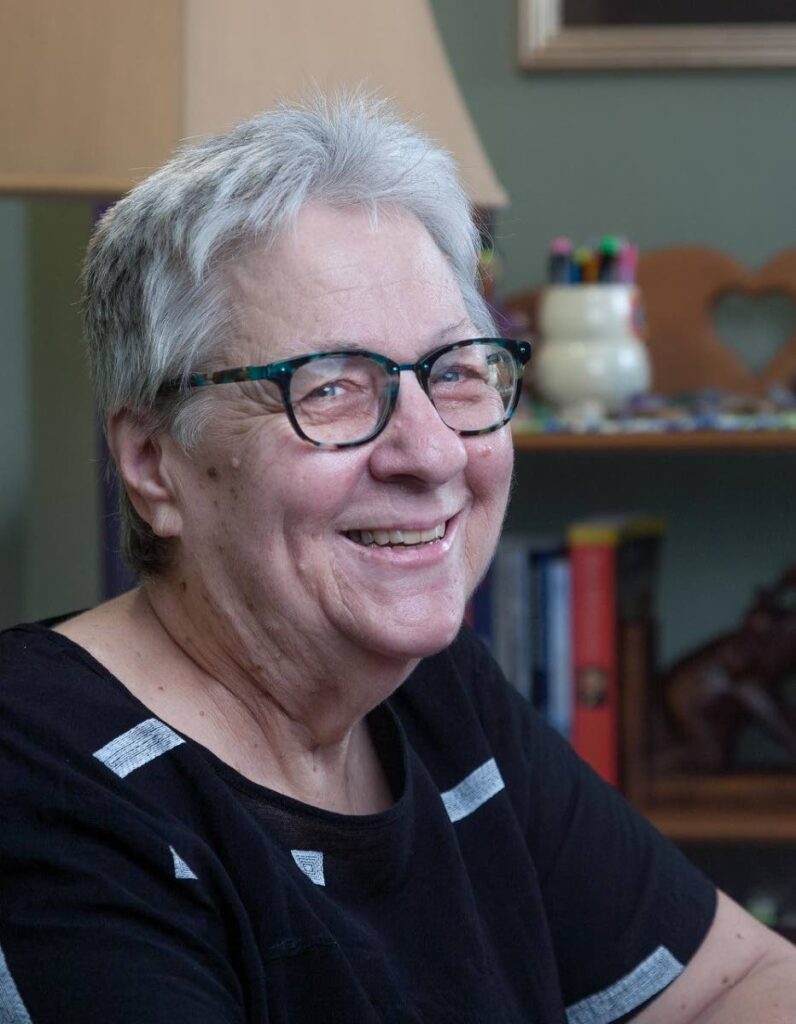Our most important holiday

ON MARCH 30 we commemorate Spiritual/Shouter Baptist Liberation Day, our most important holiday.
This date in 1951 marked the repeal of the 1917 Shouter Prohibition Ordinance that outlawed the Spiritual Baptists, referred to by the colonial authorities as Shouter Baptists.
Persecuted and prosecuted in a reign of terror during colonialism, the Spiritual/Shouter Baptists symbolised colonial resistance.
Police did not need warrants to raid homes where Spiritual Baptists worshipped. Police beat them and hauled them off to court. The Spiritual/Shouter Baptists persisted and they resisted. Their resilience was remarkable. They had nowhere to turn.
The courts represented the crown and upper-class planters. Calypsonians – even Growling Tiger, our first official national calypso monarch – mocked them. Spiritual Baptist preachers could not marry people or baptise them in rivers or the ocean, which was an important symbolic act.
In his new book, Against Toleration: Britain’s Persecution of the Spiritual Baptists, Claudius K Fergus writes, “There was something poetic and triumphal about baptism by immersion in living water for African-Caribbean Baptists: living water had carried them into bondage; living water was emancipating them from psychological, intellectual and cultural enslavement.” Fergus, a former University of the West Indies lecturer in history, reminds us that “Colonialism sought to prevent self-esteem, self-realisation and economic emancipation. Africans pushed back with a spirituality rooted in their culture.”
He tells us that there is no simple or single answer to the origin of the Spiritual Baptist denomination, but early scholars attributed its rise to the Merikins, black slaves who fought for the British on the losing side of the US War of 1812, when Britain invaded the US and burned the White House.
The British settled the loyal slaves that fought for them in Nova Scotia, Canada and Trinidad. Festus says by 1823 there were 883 Merikins in Trinidad. They brought their religion, their culture and their language.
The British outlawed the Shakers in St Vincent (in 1912) and “Shouter” Baptists in TT. Colonisers manipulated facts and built their case with language, degrading the religions they outlawed by calling them Shakers and Shouter Baptists. But Baptists countered the authorities by calling themselves Spiritual Baptists.
The Spiritual Baptists represented more than colonial resistance. They showed us the importance of our creole languages. In court, they used creole and moved the crowds with it. They worshipped in creole.
Fergus says, “The African diaspora in the greater Caribbean created new languages; all interconnected; new musical genres; all interconnected; new religions; all interconnected. Each is a synthesis of many historical, cultural and cosmological elements. All were forged from resistance, to oppression and diverse struggle to humanize their environment…”
The Spiritual Baptists’ power lay in their ability to adapt. Whatever Christian rituals they took from the Merikins they merged with African rituals, particularly the mourning ground, which Fergus says is a “distinct Kongolese-Bantu rite of living one’s own death.
Present during Jamaican slavery, the revival ritual combines dance and trance in religious ritual.” He says, “A large migration of Kikongo and Kimbundu peoples into Trinidad may have been responsible for the schism in the Merikin Baptist church. By the end of the 19th century, Shouterism was an established religion.”
Britain imposed its classic strategy of divide and rule while dealing with the Spiritual/Shouter Baptists. Fergus refers to “psychological war,” the pressure to have them return to sanctioned churches, the encouragement of other Christians to spy on them and report them. And the Spiritual/Shouter Baptists persevered, becoming our biggest symbol of resilience and rebellion during colonialism.
The holiday we celebrate on March 30 is not just for the Spiritual/Shouter Baptists. It is for all of us because it recognises the freedom to worship as we please.
Colonialism succeeded in a large part because of formal education that marginalised creole languages. The power of reclaiming and retaining our creole languages is one lingering lesson from the Spiritual Baptists we need to understand.
This holiday, celebrate the role creole played in preserving and promoting these island cultures during colonialism. Celebrate that we are a country that respects every religion.
Recognise how much the Spiritual Baptists have contributed to our music. Fergus’s history Against Toleration: Britain’s Persecution of the Spiritual Baptists is an important piece of Caribbean history that everyone in the region should read with pride.
There is always a lot to ponder on Spiritual/Shouter Baptist Liberation Day.
I wish you a happy and meaningful holiday that celebrates our Caribbean roots, fairness, tolerance and freedom. Have a blessed Spiritual/Shouter Baptist Day.

Comments
"Our most important holiday"